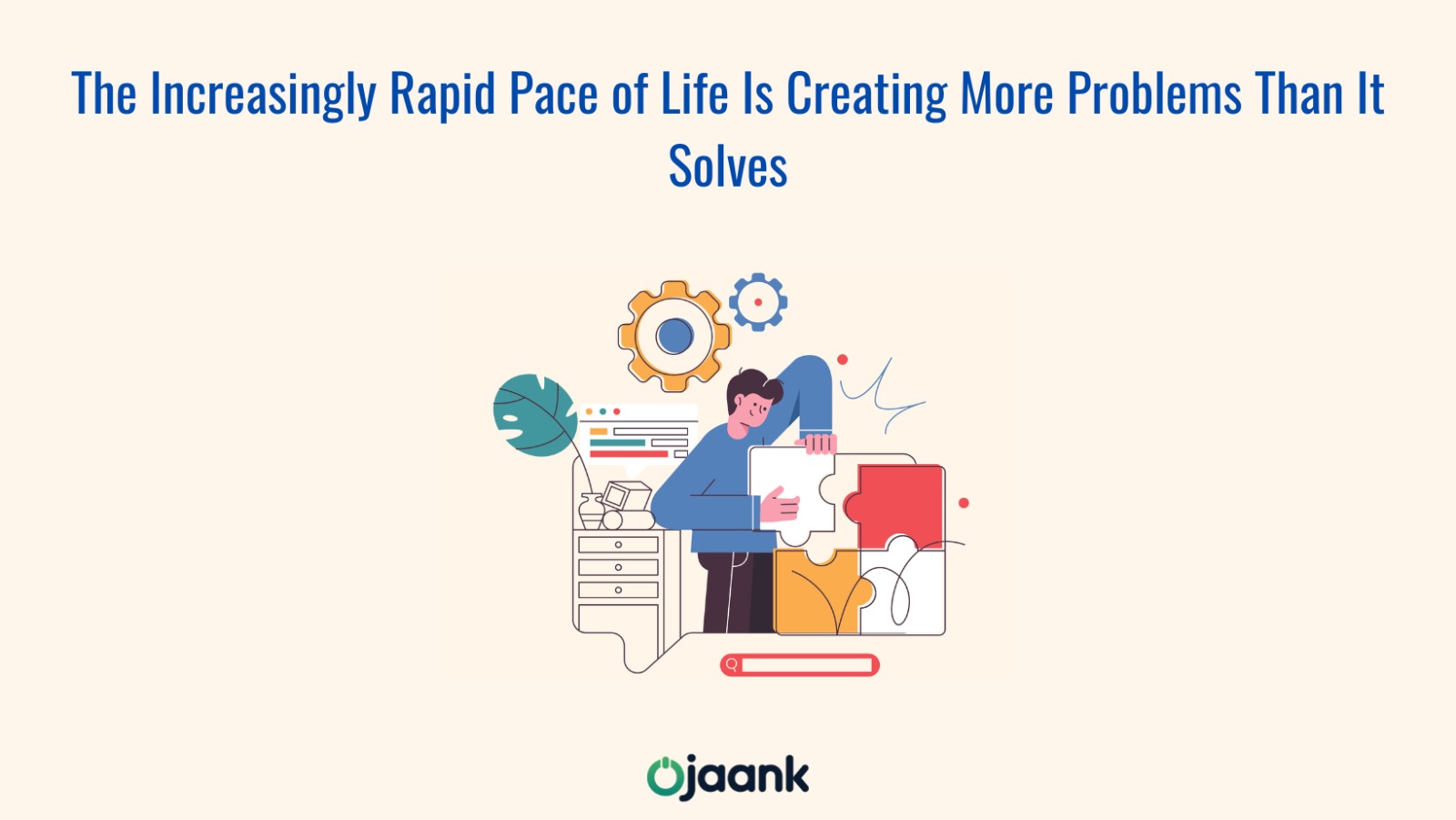The Increasingly Rapid Pace of Life Is Creating More Problems Than It Solves

In the modern era, the pace of life has reached unprecedented levels of rapidity, driven by technological advancements, global connectivity, and societal expectations. While these developments have undoubtedly brought about numerous conveniences and opportunities, they have also given rise to a myriad of problems that far outweigh the benefits. This essay explores how the increasingly rapid pace of life is creating more problems than it solves, examining the effects on mental and physical health, relationships, and overall societal well-being, accompanied by real-life examples.
The fast-paced nature of contemporary life has led to a concerning decline in mental and physical well-being. The constant pressure to meet deadlines, respond to emails, and stay updated on social media leaves individuals with little time to relax and recharge. This chronic stress has been linked to a range of mental health issues, including anxiety and depression. Moreover, the lack of time for adequate sleep and exercise further exacerbates the problem, contributing to a rise in obesity rates and other lifestyle-related illnesses.
Take the case of Alex, a young professional in a bustling metropolis. Alex is constantly juggling between work, social commitments, and personal interests. Despite achieving professional success, the relentless pace of life has taken a toll on his mental health. He finds himself perpetually burnt out, struggling to find moments of respite. The pursuit of success has left him with compromised well-being, highlighting how the rapid pace of life can negatively impact individuals.
As life becomes increasingly fast-paced, the time available for nurturing relationships diminishes. Meaningful connections require time and effort to cultivate, yet the demands of a rapid lifestyle often leave little room for this. People find themselves communicating through terse text messages or quick social media interactions, replacing deeper conversations. This has resulted in strained relationships, a decline in empathy, and a lack of emotional support networks.
Consider Sarah and Mark, a couple with demanding careers. They hardly find time for each other amid their busy schedules. The quality of their interactions has suffered, and their emotional bond has weakened. Their story reflects a common trend where relationships are sacrificed on the altar of speed, underscoring the adverse consequences of a rapid pace of life on human connections.
The rise of remote work and constant connectivity through smartphones has blurred the boundaries between professional and personal life. While the flexibility of remote work initially seemed promising, it has led to a situation where individuals are often expected to be available around the clock. This erosion of work-life balance has resulted in burnout, decreased productivity, and increased stress levels.
For instance, Maya, a freelance graphic designer, is expected to be reachable at any time by her global clients. As a result, her evenings and weekends are often disrupted by work-related emails and requests. This constant pressure to be accessible has left her feeling overwhelmed and unable to enjoy her personal life fully. Maya's experience illustrates how the rapid pace of work, driven by constant connectivity, can erode the boundaries that are crucial for a healthy work-life balance.
The rapid pace of life has fueled consumerism, driving people to constantly seek new experiences, possessions, and forms of entertainment. This insatiable desire for more has significant environmental implications, as the production and disposal of goods contribute to resource depletion and pollution. Additionally, the fast fashion industry, driven by fleeting trends, has led to a culture of disposable clothing, exacerbating the environmental crisis.
Take the example of the smartphone industry, where new models are released at an alarming rate, encouraging consumers to upgrade frequently. This cycle of consumption not only strains natural resources but also perpetuates the throwaway culture. The environmental toll of this frenetic pace of consumerism serves as a stark reminder of how societal problems are exacerbated by the pursuit of speed.
In the race to keep up with the rapid pace of technological and societal changes, there's a risk of losing sight of essential cultural values and traditions. As traditions require time and patience to be preserved and passed down, they often fall by the wayside in a world that values speed and novelty. This erosion of cultural values can lead to a sense of rootlessness and identity crisis among individuals.
Consider the decline of family dinners in many households. With each family member engrossed in their digital devices and busy schedules, the tradition of sharing a meal and meaningful conversation has suffered. This erosion of a simple yet culturally significant practice reflects how the rapid pace of life can contribute to the weakening of our cultural fabric.
In conclusion, while the rapid pace of life has undoubtedly brought about technological advancements and new opportunities, it has also given rise to a multitude of problems that far outweigh the benefits. The detrimental impact on mental and physical health, strained relationships, erosion of work-life balance, consumerism, environmental degradation, and the erosion of cultural values collectively illustrate how the relentless pursuit of speed can have serious consequences. As individuals and societies, it is imperative to reevaluate the trade-offs of such a pace and strive for a more balanced and sustainable way of living, one that prioritizes well-being, meaningful connections, and the preservation of cultural richness. Only through deliberate efforts to slow down and make conscious choices can we hope to mitigate the problems arising from the increasingly rapid pace of life.